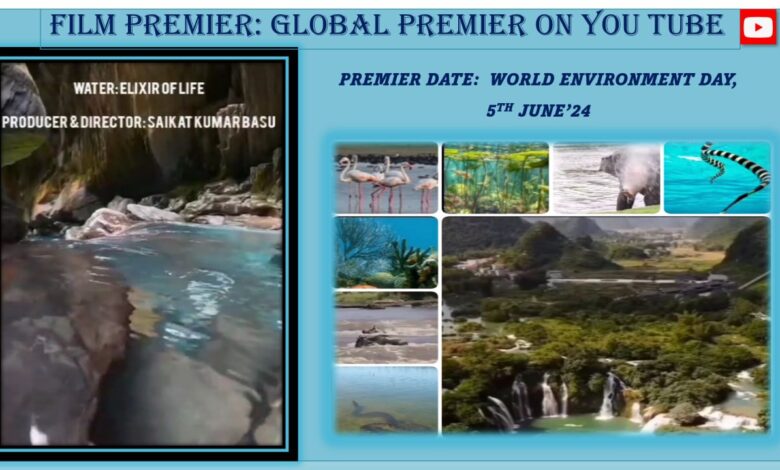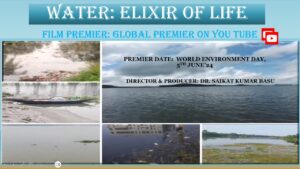Analysis /OpinionEnvironment
Need for Water Conservation
The world population has grown rapidly, increasing the demand for water for drinking, agriculture, industry, and sanitation. Expanding industries require significant amounts of water for production and cooling processes, contributing to higher consumption and pollution of freshwater sources.

Saikat Kumar Basu /24th October 2024
Water conservation is crucial for our survival because water is a finite and irreplaceable resource that sustains all life on Earth. Humans depend on freshwater for drinking, agriculture, sanitation, and industrial processes, but only about 1% of Earth’s water is readily accessible for human use. As populations grow and economies develop, the demand for water increases, putting immense pressure on available freshwater supplies. Many regions of the world, especially in arid and semi-arid areas, already face severe water shortages. Climate change, overuse, and pollution are depleting freshwater resources, making water conservation essential to ensure long-term availability. Water is essential for growing crops. Agriculture accounts for about 70% of global freshwater usage, and conserving water ensures that we can continue to produce enough food for a growing population. Freshwater ecosystems, including rivers, lakes, and wetlands, rely on consistent water availability to support biodiversity. Overuse and pollution of water resources threaten these ecosystems, which are crucial for maintaining ecological balance. Water is required for generating electricity, particularly in hydroelectric power plants and cooling systems for thermal power plants. Efficient water use helps ensure the sustainability of energy production. Access to clean water is vital for health, hygiene, and sanitation. Without water conservation, millions of people face the risk of waterborne diseases and poor living conditions.
 The world population has grown rapidly, increasing the demand for water for drinking, agriculture, industry, and sanitation. Expanding industries require significant amounts of water for production and cooling processes, contributing to higher consumption and pollution of freshwater sources. The growth of cities has led to increased demand for water, often leading to the over-extraction of nearby water sources and contamination from urban runoff. Industrial waste, agricultural runoff, and inadequate sewage treatment have polluted many freshwater sources, reducing the availability of clean water. Rising global temperatures are altering precipitation patterns, causing more frequent droughts in some areas and severe flooding in others, both of which affect water availability. In many parts of the world, water is wasted due to inefficient agricultural practices, leaky infrastructure, and poor water management, exacerbating the scarcity problem. To secure the future, adopting water conservation measures such as reducing waste, recycling water, improving irrigation techniques, and protecting water sources is essential. We always need to remember that water is ‘Elixir of Life’.
The world population has grown rapidly, increasing the demand for water for drinking, agriculture, industry, and sanitation. Expanding industries require significant amounts of water for production and cooling processes, contributing to higher consumption and pollution of freshwater sources. The growth of cities has led to increased demand for water, often leading to the over-extraction of nearby water sources and contamination from urban runoff. Industrial waste, agricultural runoff, and inadequate sewage treatment have polluted many freshwater sources, reducing the availability of clean water. Rising global temperatures are altering precipitation patterns, causing more frequent droughts in some areas and severe flooding in others, both of which affect water availability. In many parts of the world, water is wasted due to inefficient agricultural practices, leaky infrastructure, and poor water management, exacerbating the scarcity problem. To secure the future, adopting water conservation measures such as reducing waste, recycling water, improving irrigation techniques, and protecting water sources is essential. We always need to remember that water is ‘Elixir of Life’.Photo credit: Saikat Kumar Basu






